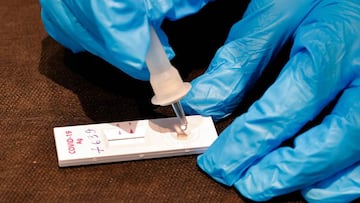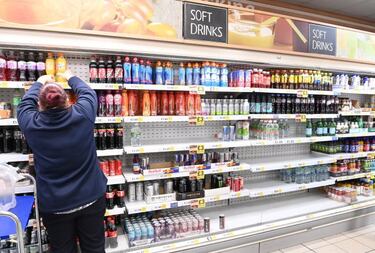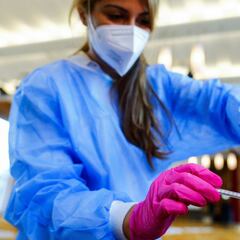Can I get tested for COVID-19 at home? what's their accuracy?
Self-tests can be used by any symptomatic patient regardless of their vaccination status. Rapid tests can be useful to get quick answers from home.

If you need to be tested for COVID-19 by a healthcare service member, you might prefer to take a quick test yourself at home. Those self-collection kits or the so-called "self-tests" are simple antigen tests, which can be carried out by anyone at home or at any other place, that is why they are sometimes called "home-tests". Results are revealed within minutes, in contrast with the one-day or two-day wait of PCR or regular coronavirus tests.
Those kits can be bought at any local pharmacy with or without prescription for a certain amount of money. Currently, rapid tests are used to detect covid infection, working in the same way as pregnancy tests do, one line means negative, while two lines show positive results.
Self- tests are still helpful
Rapid tests, like PCR ones are not 100 percent accurate, they are imperfect, meaning that a negative result doesn't mean you are free of the disease, but it might maybe give a false negative due to several reasons such as early testing before there is sufficient viral load. Whilst laboratory PCRs are still more accurate than self-kit tests, rapid tests are still useful in multiple occasions where you need a quick test and you can't access one from a healthcare provider.
"Rapid tests are not as accurate as our laboratory PCR testing, but they can be useful in some situations."
Scott Koepsell
"For example, in a patient with symptoms that are suspicious for covid-19, a positive rapid antigen test is likely correct. In this case, a very quick answer in just minutes can help that infected person isolate and develop a plan to monitor their symptoms," medical director of the University of Nebraska Medical Center Scott Koepsell added.
Moreover, Dr. Koepsell stresses the importance that people without covid-19 symptoms not to rely on one rapid test alone to clear themselves of being infectious, as it could give a false negative.
"As vaccination rolls out, testing is still incredibly important," Dr. Koepsell said. "Not everyone is vaccinated, especially our children, so we need to continue diagnosing the virus.
"Testing enables appropriate isolation and protects health care workers who perform high-risk procedures on patients."

At the moment, Five at-home rapid COVID-19 tests have been approved by FDA, with three of them being antigen tests,(Abbott, Ellume and Quidel) while the other two are molecular-based (Cue Health and Lucira). However, only three of the tests are available to the general public.
QIAGEN QIAreach SARS-CoV-2 Antigen Test receives US FDA EUA
— Ellume (@EllumeHealth) August 9, 2021
- eHub can analyze over 30 samples/hour
- QIAreach SARS-CoV-2 Antigen & Antibody tests can be run simultaneously
- new combination of scalability and speedhttps://t.co/v7jgSdAFKM #COVID19 @QIAGEN pic.twitter.com/fgK0OGEmGb
Related stories
The following table shows how accurate each test is compared to PCR testing, as well as a protocol summary you should know before using them.
Rapid tests allowed to general public
| Rapid self-test | How to use | Accuracy | Availability |
| Abbotts's BinaxNOW rapid test | Works like a pregnancy test. Swab the inside of your nostril and then place the swab in the card. Testing is serial meaning you have to take two tests with a three-day difference. |
Positive result of 84.6% Negative result of 98.5% | $24 for two tests at pharmacies. Do not meet travel requirements. |
| Ellume rapid test | Nasal swab further back than the nostril. Results will be sent to your phone in 15 minutes, as well as public health experts. |
96% symptomatic patients 91% without symptoms patients | $35 at pharmacies and Amazon |
| Lucira molecular test | Swab the inside of your nostrils, then swirl the swab into a small sample vial. After 30 minutes a light-up display shows the result. |
Positive result of 83.5% Negative result of 99.2% | $55 at lucirahealth.com |
To know more tips on performing a home-test and understanding the results click here.


